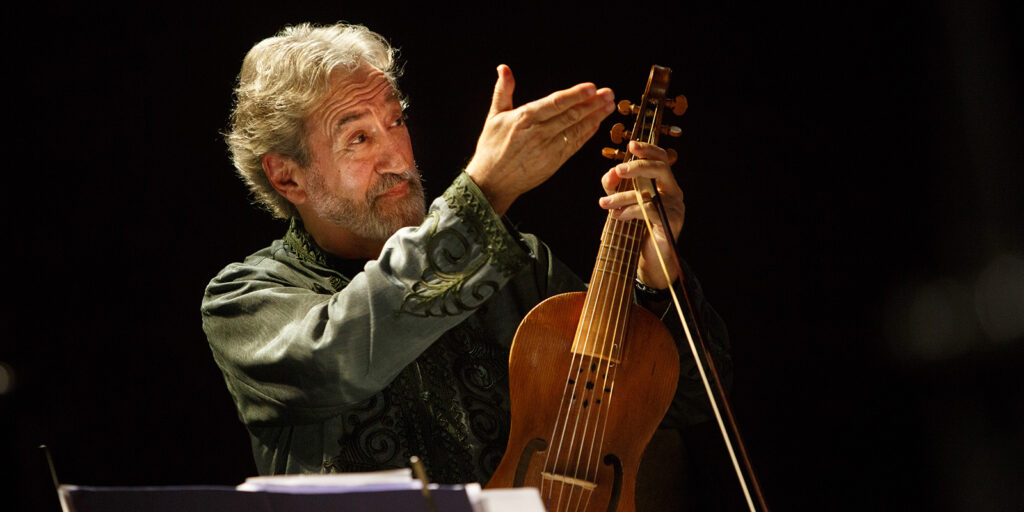The classical music heard most often comes from the 18th, 19th and 20th centuries. Acclaimed conductor and instrumentalist Jordi Savall specializes in earlier works with his Grammy-winning ensemble Hespèrion XXI. On April 9 at 7:30 p.m. at Hodgson Concert Hall, Savall leads the group in a program titled “Le Nuove Musiche: The Baroque Revolution in Europe 1560-1660.”
For more than 50 years, Savall, one of the most versatile musical personalities of his generation, has rescued musical gems from the obscurity of neglect for all to enjoy. A tireless early music researcher, he interprets and performs the repertory both as a viola da gamba virtuoso and a conductor. His activities as a performer, teacher, researcher and creator of new musical and cultural projects have made him a leading figure in the reappraisal of historical music throughout the world.
With his key participation in Alain Corneau’s 1992 film “Tous les Matins du Monde” (awarded the César Cinema Prize for the best soundtrack), his intense concert activity (about 140 concerts per year), his record releases (six recordings per year) and the creation in 1998, together with Montserrat Figueras, of his own record label, Alia Vox, Savall has shown that early music does not have to be elitist, but rather that it appeals to an increasingly wide and diverse audience of all age groups.
With a repertoire that encompasses the period between the 10th and 18th centuries, Hespèrion XXI searches continuously for new points of union between the East and West, with a clear desire for integration and for the recovery of international musical heritage, especially that of the Mediterranean basin and with links to the New World.
In 1974, Savall and Figueras, together with Lorenzo Alpert and Hopkinson Smith, founded the ancient music ensemble Hespèrion XX in Basel as a way of recovering and disseminating the rich and fascinating musical repertoire prior to the 19th century on the basis of historical criteria and the use of original instruments. The name Hespèrion means “an inhabitant of Hesperia,” which in ancient Greek referred to the two most westerly peninsulas in Europe: the Iberian and the Italian. It was also the name given to the planet Venus as it appeared in the west. At the turn of the 21st century, Hespèrion XX became known as Hespèrion XXI.
Today, Hespèrion XXI is central to the understanding of the music of the period between the Middle Ages and the Baroque. Their labors to recover works, scores, instruments and unpublished documents have a double and incalculable value. On one hand, their rigorous research provides new information and understanding about the historical knowledge of the period, and on the other hand, the exquisite performances enable people to freely enjoy the aesthetic and spiritual delicacy of the works of this period.
Audience members can enjoy a pre-performance talk by Peter Lane in Ramsey Concert Hall from 6:45-7:15 p.m.
This performance is supported by Gregory and Jennifer Holcomb with the support of the Departament de Cultura of the Generalitat de Catalunya and the consortium Institut Ramon Llull.
Three ways to get tickets
- Purchase tickets online at pac.uga.edu.
- Call the Performing Arts Center box office at 706-542-4400, Monday through Friday, 10 a.m. to 5 p.m.
- Visit the UGA Performing Arts Center box office, Monday through Friday, 10 a.m. to 5 p.m. (five-minute parking is available in the drop off circle at the Performing Arts Center for purchasing or picking up tickets.)
Single tickets begin at $25, and UGA student tickets are just $10. Parking is free.
To learn more about all UGA Performing Arts Center events, visit pac.uga.edu.
